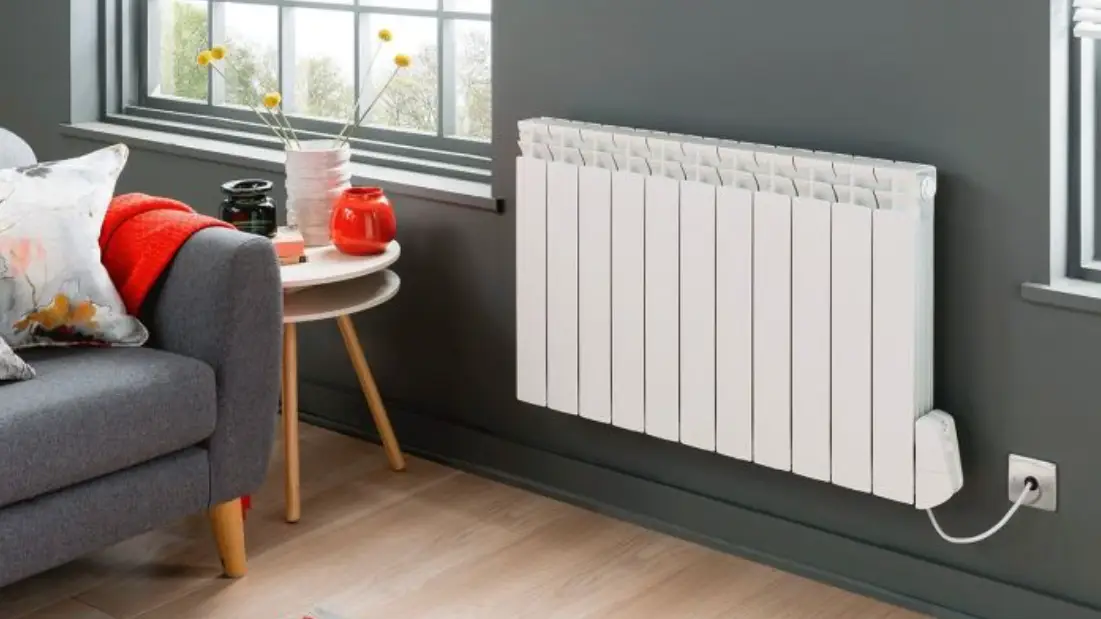Cost of Installing Electric Radiators in 2023
Lots of households in the UK use electric radiators to heat their homes. They're generally electric wall heaters (or panels) that may blow hot air around a room, or they may just have elements inside. But how much does it cost to have electric radiators installed?
Electric wall heater installation costs
The costs of installing electric radiators can vary depending on your location in the country, the type of radiators you choose and how many units you need. HaMuch has a huge database of hourly and daily rates for jobs based on your local area, but here are the average costs of installing electric radiators:
|
Type of electric radiator |
Average cost |
|
Replacing electric wall heater |
£500 |
|
Installing new electric radiator system |
£1,365 for 1-2 days, plus approx. £200 per electric radiator |

What are electric radiators?
Most electric heating systems are made up of separate radiators, or heaters, in every room, rather than having a central boiler that might run off gas or LPG.
Electric radiators have elements inside them. When switched on, these elements heat up, and the heat is transferred to your room. They use all the electricity provided to them to heat the elements, so are considered 100% efficient. However, since electricity costs around four times the price of gas per unit (as of March 2023), they can be a very expensive way to heat your home.
Pros of electric radiators
No need to heat rooms you’re not using - Since each electric radiator has its own switch, you only need to heat the spaces you’re using. This is a huge benefit as opposed to gas central heating, where you would need to have TRVs (thermostatic radiator valves) to ensure radiators in other rooms were turned off.
Quick and easy to install - If you’re replacing electric radiators, they’re very simple to install as the wiring is already there. Even if you are installing a new electric radiator system, each one shouldn’t take too long to install as long as you have a good electrician.
Affordable - Electric radiators are much more affordable than a new gas central heating system, making them a good option if you are on a budget. However, it’s worth remembering that running costs can be high.
Cons of electric radiators
Not as desirable as central heating - Homes with electric heating are often valued lower due to how expensive it is to run. Consider this if you will want to sell your home in the near future.
Won’t provide long-lasting heat - Although considered efficient because all electricity is used to heat the elements, electric radiators aren’t the most efficient in terms of actually heating your home. As soon as they turn off they will stop heating the space, whereas radiators with water in them will continue to emit heat.
Can be noisy - Most electric radiators blow hot air, which means they can be noisy. This is worth considering if you want to install them in a bedroom or other space that you want to have a relaxing atmosphere.
Expensive to run - Electricity costs much more than gas, making electric radiators expensive to run. You’ll need to weigh up the cheap installation costs with the high running costs. If you have an Economy 7 or Economy 10 electricity tariff, you could install storage heaters to use cheaper night rate electricity to heat your home.
Best electric radiator brands
While there are electric radiators available for £150-£200 that will definitely do the job, you may want to spend a little more for added efficiency or style. Here’s a rundown of some of the most popular electric radiator brands and how much they cost:
|
Brand |
Price range |
|
Rointe |
£186-£650 |
|
£330-£420 |
|
|
Haverland |
£385-£530 |
|
Stiebel |
£230-£350 |
Do you need an electrician to install electric radiators?
Yes - you do need an electrician to install electric radiators. It’s not a good idea to try to install them yourself as if you don’t know what you’re doing, you could shock yourself or cause a fire hazard. Always use a registered electrician for any electrical work.
Do electric radiators use a lot of electricity?
If switched on all day, electric radiators will use a lot of electricity. However, the cost of using them is more down to the fact that electricity is much more expensive than gas. If you have a mains gas supply to your house, it might be worth considering installing a gas boiler and central heating system instead, to save money in the long term.
Do electric radiators need plumbing in?
No - electric radiators don’t need plumbing in. They use heating elements to heat your home, so no water is involved. However, it does mean that you’ll need to think about how you will heat your water if you don’t have a gas boiler - lots of homes with electric heating use an electric boiler, an immersion heater or solar hot water.
If you’re looking at installing electric radiators, make sure you get a range of quotes from local qualified electricians. Use HaMuch to compare quotes and ensure you get the best price.